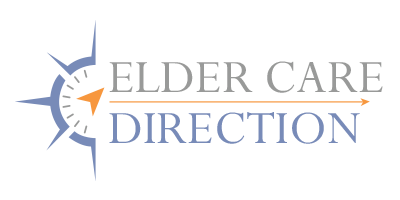Failing to understand how expensive long-term care is
While you might believe that caring for a loved one at home is more affordable than nursing home care, that is not always true. Quality home health care can cost as much as $20 per hour, and most agencies require that you have the care in your home for a minimum of four hours per day. Round-the-clock care can cost more than $14,000 per month.
Assisted living facilities are also very expensive and cost a minimum of $3,500 per month. Additional fees may also be charged for services including continence and medical care. Nursing homes can cost as much as $8,000 each month. Elder Care Direction can review the various long-term health options that are available to you so that you have a better idea.
Failing to understand what is covered by insurance
Some people wrongly believe that Medicare will pay for long-term care. It does not, however. Medicare will only cover the cost of rehabilitative nursing care for a short duration following a hospital stay. If you or your loved one develops a serious condition that requires ongoing care, the expenses involved can devastate you by depleting your savings. Most private medical insurance plans also limit what they will pay for long-term care. Long-term insurance may be a good option for you if you can afford it.
If you cannot afford long-term insurance or cannot obtain it, you will want to check your eligibility for Medicaid benefits to pay for your long-term care. There are special Medicaid rules for married couples that allow people to preserve their assets or transfer them while still qualifying for benefits for their long-term care. There may also be benefits available to you through the Veterans’ Administration if you or your spouse served a minimum of one day during a wartime period.
Failing to have medical and financial powers of attorney in place
It is very important for everyone to have medical and financial powers of attorney in place just in case that they become ill or are injured and are left unable to make decisions for themselves. A financial power of attorney can designate someone who will be able to handle your accounts, make financial decisions and buy and sell property for you. Medical powers of attorney allow you to designate who will be able to make medical decisions on your behalf if you are incapacitated and unable to make the decisions on your own.
If you do not have these powers of attorney in place, your loved ones may have to seek guardianship. Guardianship involves a legal process in probate court through which others can gain the power to make decisions, but the process is lengthy and expensive. Elder Care Direction can help you to draw up medical and financial powers of attorney.
Not coordinating your beneficiary designations
While your trust or will is used to pass on your assets to the people of your choosing after you die, your beneficiary designations will be enforced over anything in your trust or will.
This makes it very important for you to review your beneficiary designations on your life insurance and retirement plans to make certain that they match your will or trust.
Failing to address family problems prior to a crisis
It is now common for people to have second or even third marriages later on in life. If you have remarried and have children from previous marriages, issues can arise with your estate plan.
You should let your children know about any updates that you make to your estate plan so that there will not be any confusion about who will be responsible in the event of a health crisis. You should also make certain to let your family know how your estate will be divided among them when your spouse dies.
Contact Elder Care Direction
Elder Care Direction is focused on helping you to plan for your long-term care needs so that you can avoid making potentially costly mistakes. We are able to help you to avoid unnecessary paperwork and fees and may save you up to $7,500 in costs alone while providing you with guidance throughout the planning process.
To get started today, call us to schedule your appointment.
Our sites and services may provide access to independent attorneys, self-help services, including general information related to the law, and lawyers designed to help users safely cope with their own legal needs. Our sites and services also provide services to lawyers and other legal professionals.
We are not lawyers or a law firm and we do not provide legal, business or tax advice. None of our representatives are lawyers and they also do not provide legal, business or tax advice. The accuracy, completeness, adequacy or currency of the content is not warranted or guaranteed. Our sites and services are not substitutes for the advices or services of an attorney. We recommend you consult a lawyer or other appropriate professional if you want legal, business or tax advice. See TERMS Of USE for more information.

